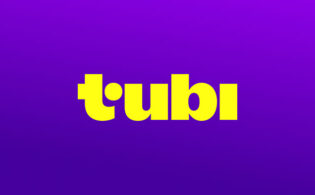A MIPCOM Online+ panel today moderated by World Screen’s Anna Carugati took a deep dive into what’s driving the success at Tubi, with Adam Lewinson outlining the AVOD platform’s content strategy, while Banijay Rights’ Matt Creasey weighed in on how the distributor is working with the service and Foxtel’s Mark Frain discussed the benefits of their partnership in the Australian market.
Tubi, which was snapped up by FOX Entertainment earlier this year, currently serves 33 million monthly active users streaming more than 200 million hours of programming every month. Citing data from Reelgood, an analytics company, Lewinson, Tubi’s chief content officer, said that Tubi is the fifth-ranked streamer in the U.S. “behind the usual suspects of Netflix, Amazon, Hulu and Disney+.”
Matt Creasey, executive VP of sales, co-productions and acquisitions, rest of the world outside of EMEA, at Banijay Rights, began licensing content to Tubi in his Endemol Shine days prior to the merger. “I had realized early on that there was an appetite for programming that you wouldn’t see on cable or network TV in the U.S. With the great library we had [at Endemol Shine], I was already looking for opportunities as to where we could start exploiting more content in the market. The SVOD world for us is very strong for premium drama and non-scripted, but what the AVOD world opened up to us was a fairly risk-free test center to start trying out different content that we had the rights to that previously would never have got on in America.”
Mark Frain, CEO of Foxtel Media, discussed the partnership with Tubi, which sees the company serving as the sole ad sales representative in Australia for the platform through 2022. The relationship kicked off in July; “prior to that, there was some heavy courting from Foxtel Media,” Frain said. “As Adam touched on, there’s a streaming wars battle out there, and likewise for us, there’s a video advertising war. We were identifying premium content partners that could help take us on that journey and grow significantly. So Tubi became an ideal partner based on premium content, great technology and also great data capabilities.”
Part of Tubi’s success, Lewinson said, lies in its content personalization engine—“every single viewer has their own individualized journey,” he said—and its deep catalog that runs across a variety of genres. “We have consumers and all they want to watch is anime. We have fans who just want to watch horror, or just kids’ content. But most people genre-hop, based on their mood, based on co-viewing. That diversity is important. That’s one of the main reasons we have this massive library. In the month of September, we had the Hunger Games movies. We had viewers who came in and watched all the movies then went on to watch some action movies, some sci-fi, etc. Others came and just watched the first movie and then went and watched something completely different. Every journey is different. That’s the point.”
“That range of library they can present to their viewers is totally what we’ve been able to tap into,” said Banijay’s Creasey. “It’s amazing what the data shows you, both from a viewing experience but also from a revenue experience as well.” The platform has delivered audiences on shows that “if you looked at them from the cold light of day [you’d say] that’s too old, or that’s not a show that would work.” For example, the Australian drama McLeod’s Daughters, which Endemol Shine had licensed to WE tv in the U.S. in 2004, has found a new audience on Tubi. “People absolutely love it and drive to it, and the revenues for a show that is that old are amazing. The producers are still getting royalties to this day…. It’s been a fantastic partnership and continues to be in terms of us finding gems that we’ve given new life to by working with Tubi. We’ve definitely found revenues that weren’t previously there and wouldn’t have been there without the likes of AVOD and Tubi.”
Carugati then asked Frain about how the ad market has evolved since the onset of the pandemic. “Advertisers and marketers have leapt on that opportunity to move faster than they ever have, favoring two or three key things. Anything they can do programmatically or through automation, they’ve done a lot more of in the last three or four months. There’s a need for advertisers to have greater control than ever. Those platforms with that ability and Tubi is one, have thrived.”
Frain continued, “AVOD is a rich playground of testing and learning. That’s the case for new content and old content, and also from an advertisers’ perspective.”
The pandemic has accelerated the growing interest in AVOD, the panelists agreed. “Pre-pandemic, we were discussing, Is this going to be the year of AVOD? The trend lines were all there,” said Lewinson. “If we’re looking for a silver lining in a dark time, streaming consumption is way up. It’s quickened the trends that were already there. But it is also solidifying behavior. We’ve spent so much time talking about how many SVOD services is too much. At what point are people going to start canceling? We did some research this summer, and a lot of is generational. Certainly, for 25-year-olds and younger, this past summer, they were more likely to do a free trial on an SVOD service and cancel before it hit their credit card. If they did that, they typically did it three times. When they’re looking for a deeper library, AVOD can be very complementary.”
AVOD’s rising prominence will alter how distribution deals are made, Creasey observed. “There are instances where maybe you just do AVOD rather than linear, or we get short holdbacks,” he said.
Broadcasters need to be smart about how they structure their AVOD offers, Frain added. “The key thing that defines success is the quality of the customer experience. Foxtel runs 6 minutes of ad content [per hour] on linear. That compares to network TV’s 13 to 14 minutes. So already it’s a better experience. People are starting to learn from the mistakes of key broadcasters that tried to take the linear ad experience and apply that to VOD. Disaster. The worst customer experience you can generate. The biggest differentiator of successful AVOD platforms—this is why the partnership with Tubi works for well for us—is you create a great customer experience first, and then create a great advertiser experience second, and be very careful with your ad loads. If customers accept the trade-off and, therefore, that customer experience is optimal, the growth will be exponential.”
Discussing Tubi’s content strategy, Lewinson stressed the importance of “super-serving audiences, especially under-served audiences, with what they are looking for…. You can look at it through the lens of representation: African American viewers, LGBTQ, Hispanic, etc. That’s absolutely vital. We’ve been focused for years on Black cinema. This summer, we started to launch Tubi en Español in the States.”
Serving audiences also means catering to niches like horror or sci-fi fans. “Not everyone is going to want to spend $10.99 a month, $15.99 a month, just for their anime needs. Viewers are not going to be juggling 10 to 15 different apps. You’re going to narrow down to five. If you’re passionate about a niche, maybe you’ll spend money on the SVOD, but what we’re seeing is, if Tubi as a free service is offering this deep well in this category or another, they’ll [use the platform].”
Tubi is also keen to serve audiences that have shown an interest in content from other territories. For example, the platform is bringing the Japanese Anpanman movies to its viewers. “It’s a massive kids’ property,” Lewinson said. “It’s the biggest kids’ property in Asia. It’s never been in English or Spanish. There’s a tremendous amount of interest in seeing this in the U.S. for the first time.”
Tubi viewers have also been flocking to different versions of LEGO Masters and MasterChef. “That’s where the relationship works so well,” said Banijay Rights’ Creasey. “With MasterChef and LEGO Masters, our U.S. partner is FOX. FOX would normally have exclusivity over those shows, and we normally wouldn’t be allowed to bring [other versions] into the territory. But because of the relationship with Tubi now, we were able to talk to FOX and open that up. Generally, fans of those big brands have an insatiable appetite to seek out other versions so they can watch them,” especially as production on new episodes in the U.S. was halted by COVID-19.





